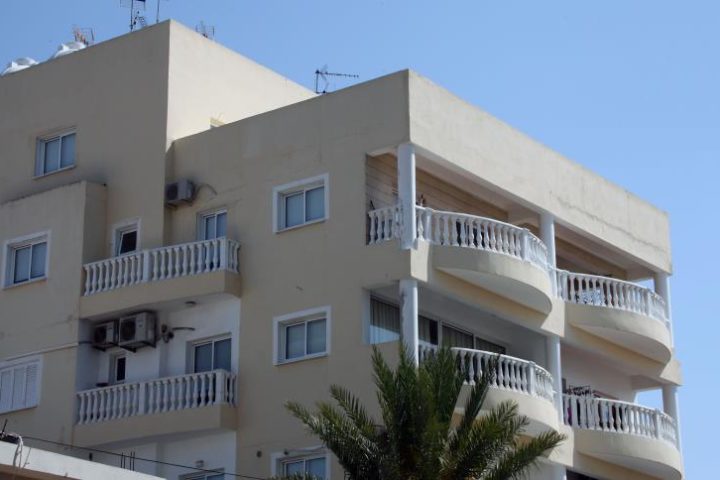The foreclosure row rumbles on as the latest episode in the saga played out when parliament voted against two non-government bills regarding the rights of borrowers defaulting on their mortgage.
At the same time, MPs agreed not to decide on a government bill to expedite disputes between borrowers and banking institutions, disregarding warnings from the Central Bank about potential threats to the financial sector’s stability.
MPs were split over a bill allowing defaulted borrowers to request that foreclosure procedures be put on ice with a court order while they resort to justice to resolve a dispute with a bank.
Parliamentarians decided to delay the voting on a government bill that would establish special-jurisdiction courts to address foreclosure disputes related to primary residences with a value of up to €350,000.
This marked the final plenary session before the summer recess.
The government’s package hoped to avert the approval of a bill tabled by Opposition left-wing party AKEL, co-signed by ELAM, the Greens, and MPs of government coalition parties DIPA and DIKO, giving the right of a non-performing borrower to appeal to the court requesting suspension of a foreclosure over excessive charges.
Initially, the non-government bill was set to pass, as it garnered a 33 majority.
However, the vote was split on Thursday, 27-27, with one MP not voting and another absent on family matters.
The bill granted borrowers the right to obtain a court order halting ongoing foreclosure proceedings against their property.
The grounds for such an order included unfair contract clauses and overcharging by banks.
The majority of MPs also rejected the second bill, introduced by EDEK and focused on selling a property at the estimated price on the date of signing a loan agreement.
Government pleased
Responding to the outcome of the House vote, Government spokesperson Constantinos Letymbiotis welcomed the bill’s defeat.
“With today’s vote against the proposed law that would allow the massive suspension of sales, a mound of responsibility was raised against populism and bad habits of the past,” Tweeted Letymbiotis.
“Through constructive dialogue and prudence, with all responsible political forces, we hope to conclude the discussion regarding the overall treatment of the chronic ailment of foreclosures and NPLs.”
Letymbiotis emphasized that the government has put forth a comprehensive set of measures and remains open to discussing any advantageous proposals that have been submitted.
Earlier in the week, the Finance Ministry, the Central Bank of Cyprus, and the Association of Cyprus Banks expressed concerns that such a law would obstruct efforts to reduce non-performing loans and subsequently weigh on the state’s credit ratings.
A source from the island’s banking sector told the Financial Mirror that discussion at the House over the right of borrowers to resort to justice did not have banks worried.
“We were mostly concerned over messages that would have been sent out to strategic defaulters, rather than whether borrowers would have the right to freeze the foreclosure of their property,” said the source.
The source admitted that from the moment the sector had reduced its exposure to Non-Performing Loans to almost 10% of what it stood just a few years back, the banks were not concerned over the remaining non-performing assets in their portfolio.
This week, the Central Bank of Cyprus released an updated report indicating a significant reduction in non-performing loans (NPLs) by €105 mln, a drop of 4.6% of the total outstanding amount.
As of the end of March 2023, the figures reflect a decrease to €2.2 bln compared to December 2022.
From December 31, 2017, to March 31, 2023, there was a significant decline of €18.4 bln, a share of 89.3%, in NPLs held by Cypriot banks.
“It’s more about the message that would have been sent out to new and existing borrowers,” said the source.
“Our data reveals that half of borrowers not paying their instalments are strategic defaulters.
“We do not wish to see their number grow.”
The source applauded the state’s intervention with lifelines for distressed borrowers, such as the ESTIA and OIKIA schemes and the latest Rent to Mortgage scheme.
Parties dissatisfied
Opposition AKEL, the main supporter of the bill to allow defaulted borrowers the right to seek a foreclosure freeze, said the other parties had gone back on their word to pass the legislation.
AKEL MP George Koukoumas said: “The co-governing parties aligned themselves with DISY and the Christodoulides administration in favour of the banks and the vulture funds (which have acquired defaulted loans).
“The proposed law would offer a minimal protection shield for borrowers against the aggressiveness of the banks”.
“The law proposal restored citizens’ constitutional right to effective access to Justice”.
Koukoumas argued that the failed bid would have aligned Cypriot legislation on foreclosures with the EU’s.
A financial consultant with expertise in disputes between borrowers and banks, Anna Theologou, backed AKEL’s accusation that the political U-turn favoured banks and funds.
“A number of MPs from parties supporting the government have tabled a bill that would exclude economists from offering their feedback in cases of dispute between defaulted borrowers and banks,” said Theologou.
“It is clearly another move to tweak the rules of the game in favour of banks and funds.
“Economists, through their studies, have helped borrowers recover millions of euros stolen by banks through overcharging and avoiding restructuring loans.
“In the last 50 successful cases I managed, totalling over €19 mln in loans, borrowers have received a refund of €8.5 mln because we were able to prove cases of overcharging and failure to restructure loans despite the willingness of distressed borrowers,” said Theologou.










